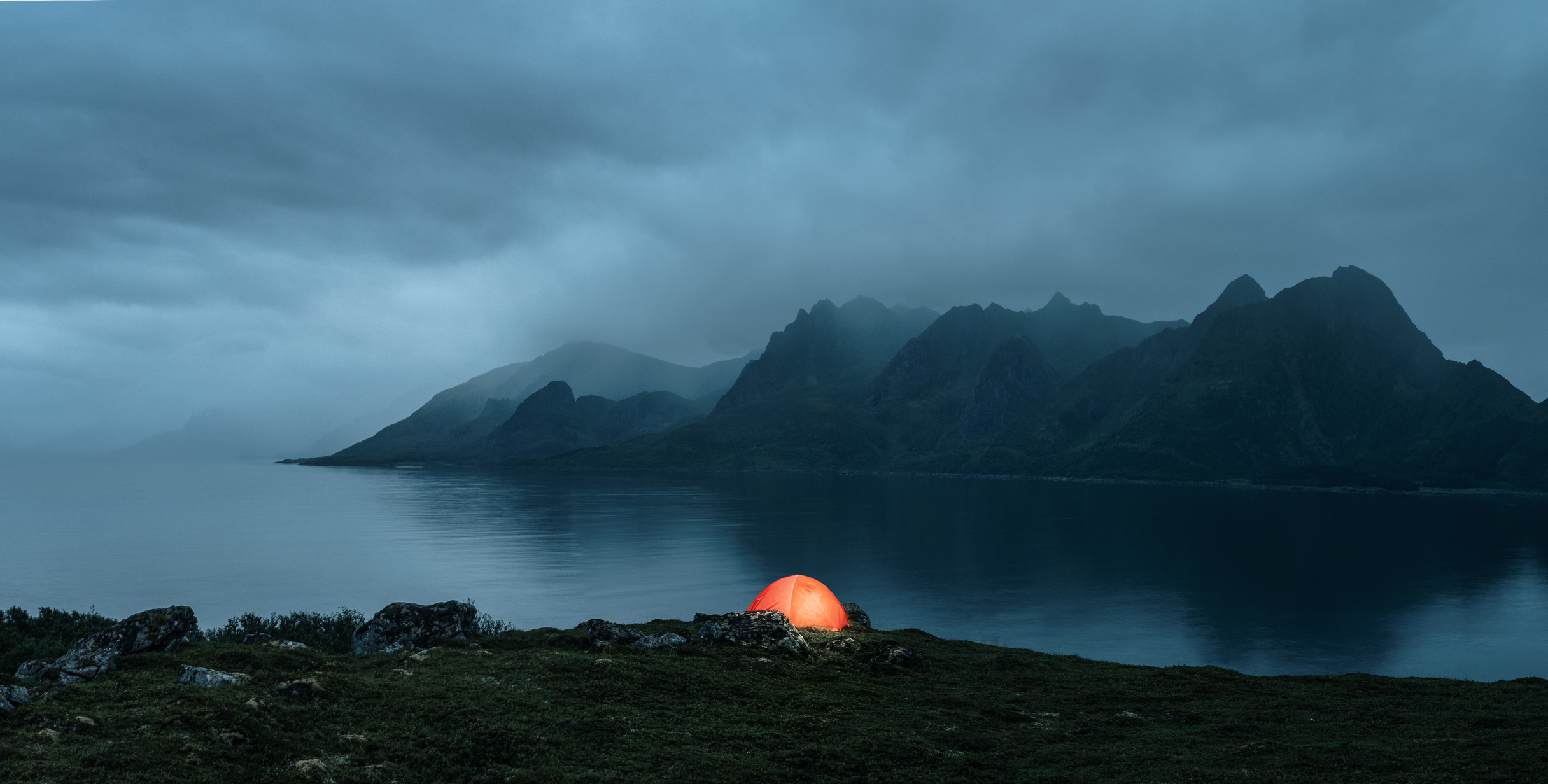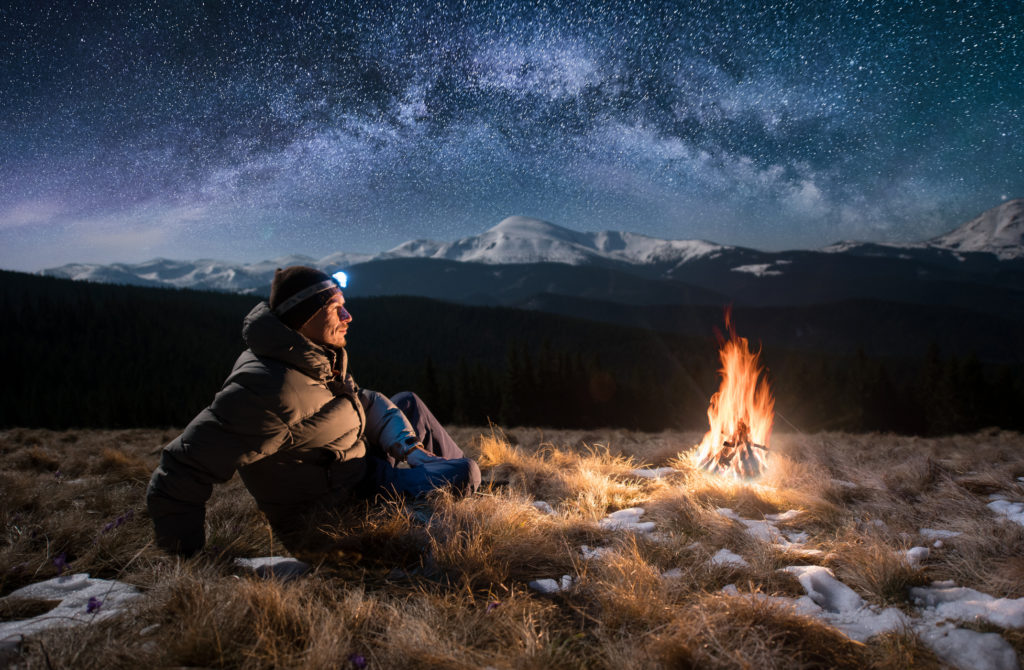
Whether you’re in Denver, Colorado, or the Peruvian Andes, living in a mountainous region presents unique challenges. Your home could be inconveniently far from the nearest city, isolated from the rest of society, or surrounded by hazardous, snowy conditions.
A special study demonstrated several variations of sleep architecture in those healthy subjects ascending to high elevation.
On top of all issues with location, you also face various problems that arise on account of the altitude. Altitude sickness or effects of elevated altitude are quite common and can result in irritating symptoms like:
- Dizziness
- Tiredness
- Headaches
- Fatigue
Did you know that being at a high altitude can even affect your sleep?
It’s true! Compared with lower elevation environments, being higher up in the mountains or elevated altitude areas can affect your sleep. Altitude exposure can create issues that could keep you from falling asleep and staying asleep for prolonged periods.
Even short term exposure may develop hypoxia, high altitude pulmonary with periodic breathing, blood pressure increased, sleep disturbances.
Not to worry, though! If you live in a high elevation environment, you can take steps to mitigate these challenges. Read on to find out how to get a perfect night of restful high altitude sleep.
What Are the Challenges of Sleeping at a High Altitude?
So, why is it harder to sleep at high altitude areas? The main reason is hypoxia. Altitude illness may not improve even with long term acclimatization.
We breathe the same amount of air, no matter where we are. However, the air we breathe at higher heights has fewer oxygen molecules in it. Deeper sleep stages and rapid eye movement (REM) sleep are reduced at altitude, therefore we experience changes in sleep patterns.
The lack of oxygen results from the lower atmospheric pressure, which leads to a lower concentration of molecules in the air. Scientists for altitude research refer to this phenomenon as hypoxia.
What does this have to do with sleep quality?
Well, to remain in a deep enough sleep for adequate rest, humans must maintain a slow and steady rhythm of breathing. The body needs blood rich in oxygen to function correctly, and the air at higher elevations is more lacking in oxygen. Therefore, breathing at heights can become unstable and irregular as the body struggles to maintain sufficient oxygen levels intake.
For the person who wants to sleep, this means:
- More trouble falling asleep
- Frequent awakenings throughout the night
- Poor overall sleep quality
- Less time to sleep
People with preexisting acute conditions that result in sleep deprivation, such as sleep apnea, will likely find that their previous symptoms worsen at higher altitudes. These individuals will have proportionately more trouble resting and breathing than those without existing sleep challenges.
During the ascent to a mountain, occurs effects like a reduction in total sleep time, sleep efficiency, and rem sleep.
YOU MAY ALSO LIKE: Military Sleep Techniques (2021)
If you struggle with a sleep disorder, it’s vital to be aware of the potential risks of traveling to different levels of elevation areas. But altitude also affects people without preexisting disorders. As such, everyone must know how to prevent issues related to high elevations and sleep. High altitude on sleep can lead to health challenges, like increased blood pressure, acute lung diseases.
Preventing Altitude Sickness Can Help Improve Sleep Quality
What can you do to improve sleep quality at high altitudes?
For one, you want to take the same precautions that you typically would in preventing altitude sickness. These measures will help you adjust to different levels of elevations more easily.
The most important of these precautions for acclimatization to high altitude is:
1. Disembark from Your Vehicle Below 10,000 Feet
Walking up to your destination from 10,000 feet above sea level will help your physique adjust to the new environment. This gradual adjustment will prevent you from going into the shock of altitude periodic breathing when suddenly experiencing a drastic elevation change.
2. Always Climb Slowly When Hiking

It is crucial to avoid overexertion. Be sure to pace yourself and not try to reach higher elevations on the mountain, faster than is comfortable or necessary. A sense of suffocation is relieved by a few deep breaths.
Once you make it past 10,000 feet of elevation above the sea level, try not to climb more than 1,000 feet in a single day, otherwise, you will risk acute mountain sickness.
3. Stay Hydrated
Besides drinking plenty of water, you should adhere to specific dietary requirements. Your diet on hikes should consist of at least 70% carbohydrates. These nutrients require less energy and time for your system to absorb.
Take these preventative measures when making your way up to a higher elevation. They will aid in alleviating the adverse side effects of high altitude sickness. That way, you’ll feel well-adjusted once you have reached your destination.
Consider Taking a Melatonin Supplement
Another way to help you fall asleep faster and stay asleep is with melatonin supplements.
Melatonin has proven effective in these situations. People with a wide range of sleep problems use it regularly without any adverse reactions, study shows.
What is melatonin?
Melatonin is a hormone that your body uses to regulate your sleep/wake cycle. The more significant amounts of this hormone are produced at night to prepare for sleep. In the morning, the body produces less of the hormone to encourage itself to wake up.
By taking a melatonin supplement, you can introduce more melatonin into your body through an external source. If you can’t naturally produce enough melatonin to get you to fall asleep, you can help yourself out and add some more.
Melatonin supplements are widely available in a variety of forms. They are available in:
- Liquid form
- Chewable (gummies)
- Pills
You can find these supplements in both artificial and natural varieties.
These supplements are beneficial as a sleep aid and accessible. They are a staple for anyone having trouble falling asleep, and they can prove particularly useful for sleepers at high elevations.
Oxygenating Your Mountain Home
This last option is somewhat extravagant, but it is undoubtedly an effective, permanent solution to sleep problems at elevated altitudes.
If you maintain a permanent residence in the mountains or a high elevation area, consider installing an oxygen control system in your home.
This machine uses altitude simulation technology to reproduce the air conditions of a lower altitude. It can monitor oxygen levels, barometric pressure, and other air quality statistics. With this data, you can alter the air quality in your home to meet a preset condition, even the sea level.
These machines counter the oxygen deprivation problem, and therefore, the issues with sleeping at high altitude. You can experience the same conditions as when you try to go to sleep at sea level. Pretty neat, right?
Conclusion
Living at a high altitude can undoubtedly present challenges for having a good sleep. But with these tips, you can get the perfect night’s sleep at any elevation. If you want to be sure that you will be able to sleep at altitude, talk to a doctor who is familiar with high altitude medicine before your trip. Sweet dreams!




